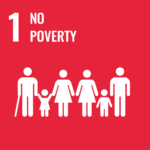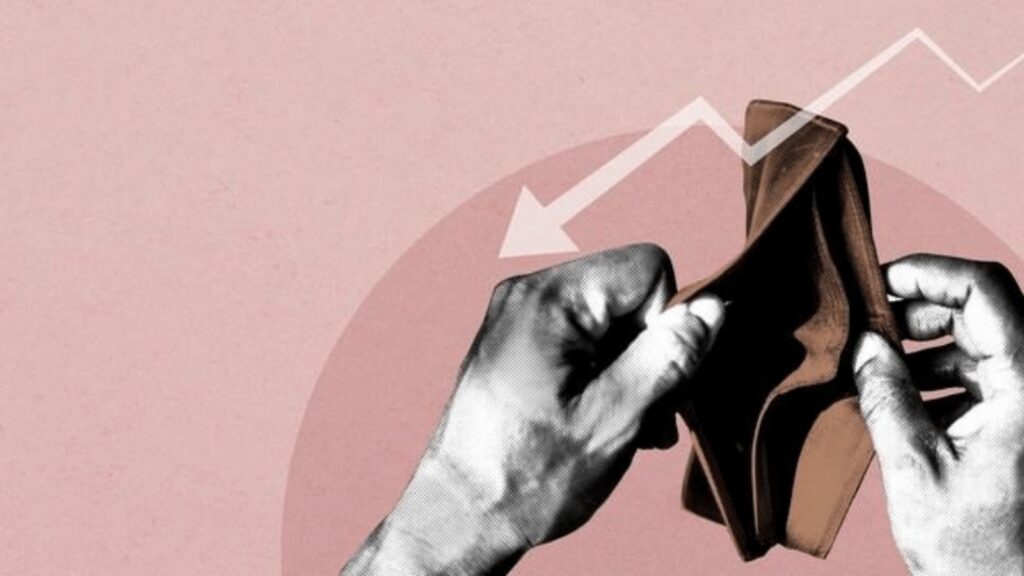Poverty is predictable but we tend to look away. We try not to speak of it; thanks to our privilege.
Today is the International Day for the Eradication of poverty. The theme this year is: Building forward together: ending persistent poverty, respecting all people and our planet. A couple few days ago, I was part of a where we discussed the privilege we have and don’t have. Along with that, is the fact that we need to think beyond lack of income when it comes to poverty.
RELEVANT SUSTAINABLE GOALS

POVERTY : BEYOND LACK OF INCOME
The United Nations has declared the eradication of poverty by 2030 as a primary development goal. In September 2015, the United Nations agreed on a new set of global Sustainable Development Goals (SDGs) with the commitment of achieving these goals by 2030. The first SDG says ‘No Poverty’: the eradication of extreme poverty by 2030 for all people everywhere.
Nonetheless, the concept of poverty isn’t simply lack of income. The concept of poverty includes different dimensions of deprivation. In general, it is the inability of people to meet economic, social, and other standards of well-being. It is a state of constant deprivation, shortages, hardships and lack of well-being. It is a state of voiceless and powerless. Being poor is thus multidimensional, encompassing vulnerability, inequality, and discrimination. It is not only personal circumstances but the social and justice systems in place that either work to empower the poor or perpetuate their condition.
Poverty is like punishment for a crime you didn't commit.
Eli Khamarov
PRIVILEGE : THE ABSENCE OF OBSTACLES AND BARRIERS
In a highly meritocratic society, ‘poverty’ can only be taken as a result of a person didn’t work hard. It is a choice. That you are simply lazy; blaming the poor for their situation. In fact, we prefer to lo away and try not to speak about it. Why ? My assumption : our privilege get hurt.
Privilege refers to unearned advantages that are structurally supported and accessible to certain groups that are denied to others. It is something we don’t always earn : we are just lucky enough to have been born on the right side of the fence. Access to choices and better opportunities and even success were handed out to us by our parents who could provide our basic needs, our teachers who were not overworked, our schools that were not underfunded, and even our friends who eventually served as our professional network. It is a social advantage that we did not work hard for.
On the contrary, for people with poverty, their lack of class privilege can be compounded by their gender, race, sexuality, and other markers that experience biases from the wider society. This leads to them experiencing cumulative disadvantages in life, making it harder to access the same level of opportunities as others.
I can go on and on, but all I really want to say is this : our privilege is subtle, but it is there. It is not the presence of perks and benefits. It’s the absence of obstacles and barriers. Having privilege is not a bad thing, it is how we USE the privilege that counts.
BRIDGING THE GAP OF POVERTY & PRIVILEGE
While it’s easy to write off people living in poverty, but maybe if we stop throwing so many barriers in their way, more people might be able to rise out of poverty. It is us, the ones with more privilege and power to change the situation of the mass, the poor to better understand what people living poverty face. It starts with us (who have more time, energy, and resources) identifying the systemic problem and working together to eradicate it. There is more to privilege than just a sum of idiosyncrasies and individual experiences creating our social reality.
Streaming services such as Netflix and Youtube can be a means to unproductive and endless binge-watching. However, they can also be an instrument of political and social change. Here are few influential and worth watching documentaries that can be a great tool for us to broaden our knowledge :
GLOBAL POVERTY & HOMELESSNESS STATISTICS 2021
An estimated 100 million people were homeless worldwide. As many as 1.6 billion people lacked adequate housing (Habitat, 2015). Getting an accurate picture of global homelessness is exceptionally challenging, mainly due to definitions of homelessness that vary from country to country. The last time a global survey was attempted by the United Nations was in 2005.
Incitement decided to compile data from the top countries on each continent with the highest and rising numbers on poverty and homelessness. The data is based on sources from the World Bank, World Food Programme, Habitat, Open DRI, Relief Web, CIA World Factbook, UNDP, Habitat for Humanity, UN, and more
THIS IS POVERTY
Produced by Joseph Rowntree Foundation (JRF) and Connected Pictures, This short film poignantly demonstrates the injustice of being held back by poverty – and that it doesn’t have to be this way. The film also creates an understanding of how people’s circumstances restrict their ability to live their lives freely and fulfil their potential.
EXPLAINED : World’s Water Crisis
Globally, more than 600 million people lack access to clean water. Explained takes big concepts like the water crisis, and breaks them down in an episode. Season 1, Episode 2, “The World’s Water Crisis,” examines the threat to water supplies, with a spotlight on Cape Town, South Africa.
UNDERPRIVILEGED MILLENIALS : BEING YOUNG, POOR IN JAKARTA
Globally, more than 600 million people lack access to clean water. Explained takes big concepts like the water crisis, and breaks them down in an episode. Season 1, Episode 2, “The World’s Water Crisis,” examines the threat to water supplies, with a spotlight on Cape Town, South Africa.
WAR AGAINST WOMEN
Filmed over three years in 10 countries, this documentary gives voice to the women who have become victims of sexual violence as weapons of war. This powerful film describes the vulnerable position of women inhabiting dangerous, impoverished regions of the world. Considered to be one of the ambitious, women from 10 war-torn countries vividly recount experiences of sexual violence and oppression. You can watch this documental on Netflix.
The article was initially published on 17th October 2021.


